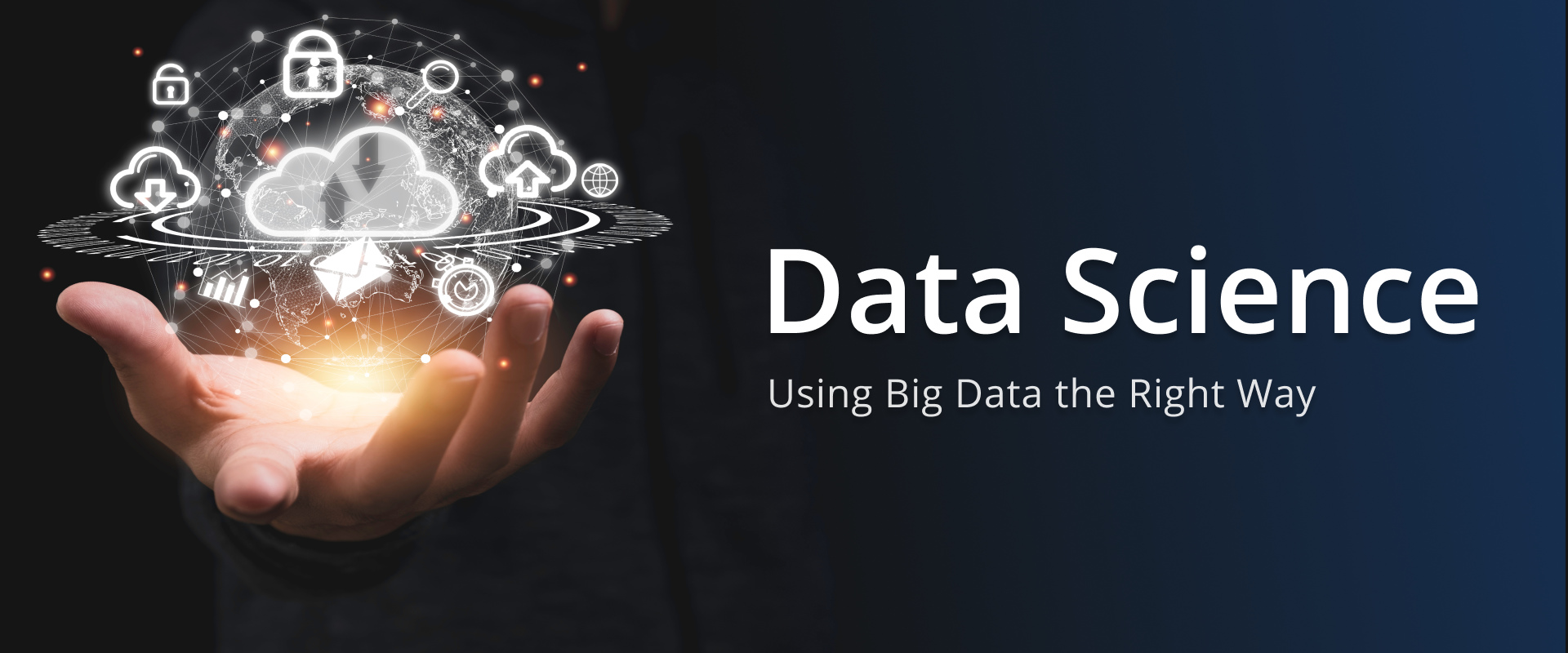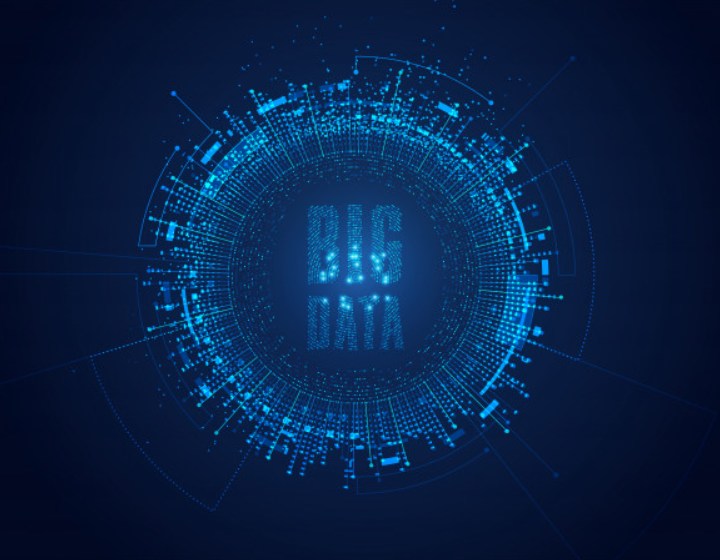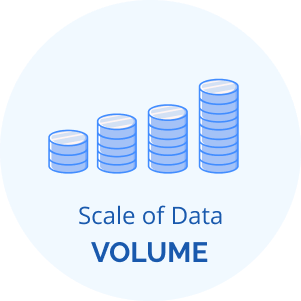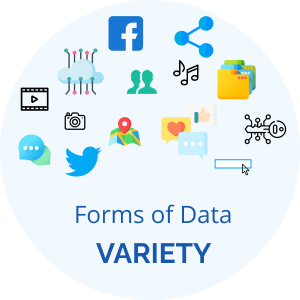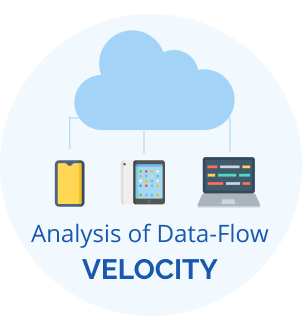- What is data science?
Data science is an emerging field of information science that uses algorithms, Artificial Intelligence, Machine Learning, and other advanced digital tools to examine and extract knowledge and value from enormous sets of both structured and unstructured data, known as Big Data. Structured data is information that is either already organized or can be easily organized, such as information in spreadsheets. Unstructured data is such information as photos, video, and audio that must be organized before it can be analyzed.
Data science has a wide variety of applications and is used in many fields, from business to medicine to education. For example, NASA uses data science techniques and algorithms to automatically compare stellar photos over time, which helps it discover comets and exoplanets.
- Why is data science important for business?
Businesses, even relatively small ones, generate massive amounts of data through their normal daily processes, including customer demographic data, customer interactions, sales information, logistical and shipping information, product information, and internal employee and communication information.
This data can be recorded and organized, and companies can then mine it for insights not only into their customers but also into the efficiency of their business model and other aspects of the way they function. But analyzing this data and putting it to good use requires expertise to avoid the risk of delving into a large trove of data and drawing incorrect and therefore unhelpful conclusions.
- How does data science add business value?
Data science takes an asset you already have—data—and draws insights and information from it that can be used to create optimal and more dynamic business strategies. It can help paint a more accurate picture of both who your customers are and what they want from you. Data science is able to recognize and highlight patterns in data and to separate the information that is important and valuable to your business from the information that can be ignored or cast aside. The technological edge data science provides can give any business an advantage over its competition in a world of increasing reliance on information.
- Is my business ready for data science?
Whether your company is ready for data science depends on several factors. Many businesses have collected more information than they realize, so engaging an outside consultant to review their position could be useful for almost any business with plans for the future. If nothing else, having an expert provide a clearer understanding of how and why a business could benefit from data science can facilitate any subsequent strategy decisions that a business must make.
For a business to be ready to use data science, it must first be aware of the commitment involved in doing so. In many cases, if not most, a data science strategy should be folded into a company’s overall digital transformation because the power and effectiveness of many advanced tech options for business, such as Big Data, Cloud Computing, and the like, are enhanced when used in cooperation with each other. To extract the greatest value and result from data science, a business should apply it in tandem with these other options.
- How do I get my business ready for data science?
Any business interested in data science should have an expert examine its current situation in terms of data intake and assets, network and IT infrastructure, current trainable staff (or the potential creation of new positions) that could handle data science issues moving forward, and other such considerations.
For some businesses, “getting ready” for data science might not be necessary, or at least not in the traditional context of business expansion. Other options are available. For example, hiring an outside firm with extensive expertise in data science and other advanced tech might be easier and more efficient for companies that wish to hit the ground running with respect to putting their data to good use. An objective, outside viewpoint might be better suited for implementation than trying to build a new section of your IT department from scratch. Even if you have employees on staff who could possibly meet the requirements, they may not have the capability or experience to exceed expectations and deliver a leap up the value curve.
- What is the difference between data science and Big Data?
Data science and Big Data can overlap substantially, but understanding what distinguishes one from the other is important. The general term Big Data refers to the current explosion of data we are experiencing in the digital age, including the gathering and exploitation of large data sets and the ways that data is recorded and stored.
Data science is a more specific, academic term that refers to the various techniques used to examine and analyze massive data sets. Data science encompasses issues of statistics and statistical modeling and the way data is organized and categorized. It often focuses on finding patterns, values, and insights in massive data sets.
To simplify, data science concerns the science of information, whereas Big Data is about the application of data science to information in the real world.
- Do I need data scientists for my business?
Your business could most likely benefit from input from data scientists, but this does not mean that you need to hire them directly. Some companies (especially tech-focused businesses and those that have undergone a complete digital transformation) have in-house data analysts and departments focused on data science and Big Data. But hiring an outside expert or consultancy might be more practical and efficient (meaning less expensive).
A consultancy’s data scientists can assist a business according to its unique needs, such as a specific project, through periodic consultations, or on a continuous basis. An outside data specialist can often provide a clearer, more objective view of a company’s data assets and thereby illuminate blind spots the company might have been unaware of.
- How can data science affect a business’s growth?
By applying data science, a business is better able to understand the needs of its customers and its employees. It can identify patterns in customer preferences that it’s never seen before and improve shipping and logistics from top to bottom. As a result, data science allows companies to seize new opportunities for growth and improve their bottom line through straightforward improvements to efficiency.
Because the volume of data in Big Data is so immensely large, no single human being, or even a team of human beings, can sift through it in a reasonable amount of time. Data science is the key to gaining insights and benefits from all the information a company possesses but is unable to analyze and apply on its own.
- Is big data necessary for data science?
Businesses need to be very careful when using the terms “Data Science” and “Big Data.” They are more than just buzzwords companies use to sound up-to-date. Data Science refers to a set of computational and mathematical techniques, and Big Data is the raw material that Data Science uses. And, like all processes, Data Science carries with it both risks and rewards. It can guide your business to greater efficiency and effectiveness in almost every area. It can help you streamline practices, from advertising to inventory. But it can also overwhelm and blind you, trapping you in a “data only” mind-set, which could misguide and halt critical thinking with respect to your business. If you want to use Big Data to help your company grow and succeed, you need a skilled, experienced partner to guide you.
A positive reputation is a valuable asset. You deserve to be in control of what the internet says about you or your brand. We specialize in building, monitoring, and protecting digital reputations. Schedule time with our team to audit your existing digital presence and find ways to elevate and enhance your online impression.

